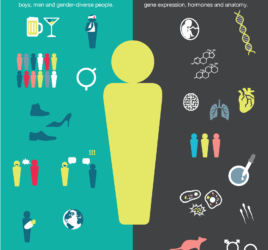
High Tea, Scones, and Brain Disorders – A Research Master Student’s First Conference Experience
As part of my Research Master curriculum in the Clinical Neuropsychology track, I have been compiling a literature review on working capacity and employment matters in patients with Parkinson’s disease. In March 2015, I was offered the opportunity to attend the joint meeting of the British Neuropsychological Society (BNS) and the Nederlandse Vereniging voor Neuropsychologie (NVN) in London as part of a course assignment. Moreover, I had the chance to present first findings of my literature review in a poster session. The conference, which took place at the Clinical Neurosciences Centre of the National Hospital for Neurology and Neurosurgery at Queen Square, London, encompassed two days of interesting talks and poster presentations. Despite the location offering limited space for curious visitors, all participants, including the members of the University of Groningen, could successfully present their projects during the poster sessions.
“For me as a fledgling researcher, presenting my research was an exciting experience and the feedback I received from other conference participants was very helpful and motivating.”
In between poster sessions, renowned speakers presented their work and talked about current proceedings and advances in neuropsychological research. On the part of the Dutch Neuropsychological Association, Prof. Victor Lamme of the University of Amsterdam introduced the topic of consciousness from a neural viewpoint. The 13th Elizabeth Warrington Prize Lecture was given by Dr. Michel Thiebaut de Schotten, who looked into the connectional anatomy of famous neurological patients with brain lesions, including Phineas Gage, H.M., and Leborgne (“Tan”). The University of Groningen was represented by Prof. Oliver Tucha, who provided an overview of his research on attention disorders. Another keynote speaker was Prof. Tim Shallice of the University College London, who discussed the role of cognitive neuropsychology in research.
After the first conference day, all participants were invited to gather at a local Turkish restaurant for dinner. The evening provided a great opportunity to connect not only more with the own group, but also to talk to researchers from other universities in a relaxed and informal atmosphere. In addition, the conference program left some time to discover the city and enjoy some authentic British Fish and Chips!
When I started the Research Master in September last year, I could not have seen myself on a conference presenting my research. Nevertheless, despite the program of the Research Master being time-intensive and demanding, being invited to join the conference (all costs covered by the Department of Clinical and Developmental Neuropsychology) has shown me that I am also offered a lot of opportunities to not only explore my interests and grow as a researcher, but also to get some hands-on experiences early in my career.
“Although I knew that the two days would be demanding, I would not have thought that they would also be so much fun. For me, it was a great and valuable experience and I recommend everyone who is interested in or considers a career in research to grab the opportunity with both hands when it comes up.”
NOTE: Image by noel morgan, licenced under CC BY 2.0



